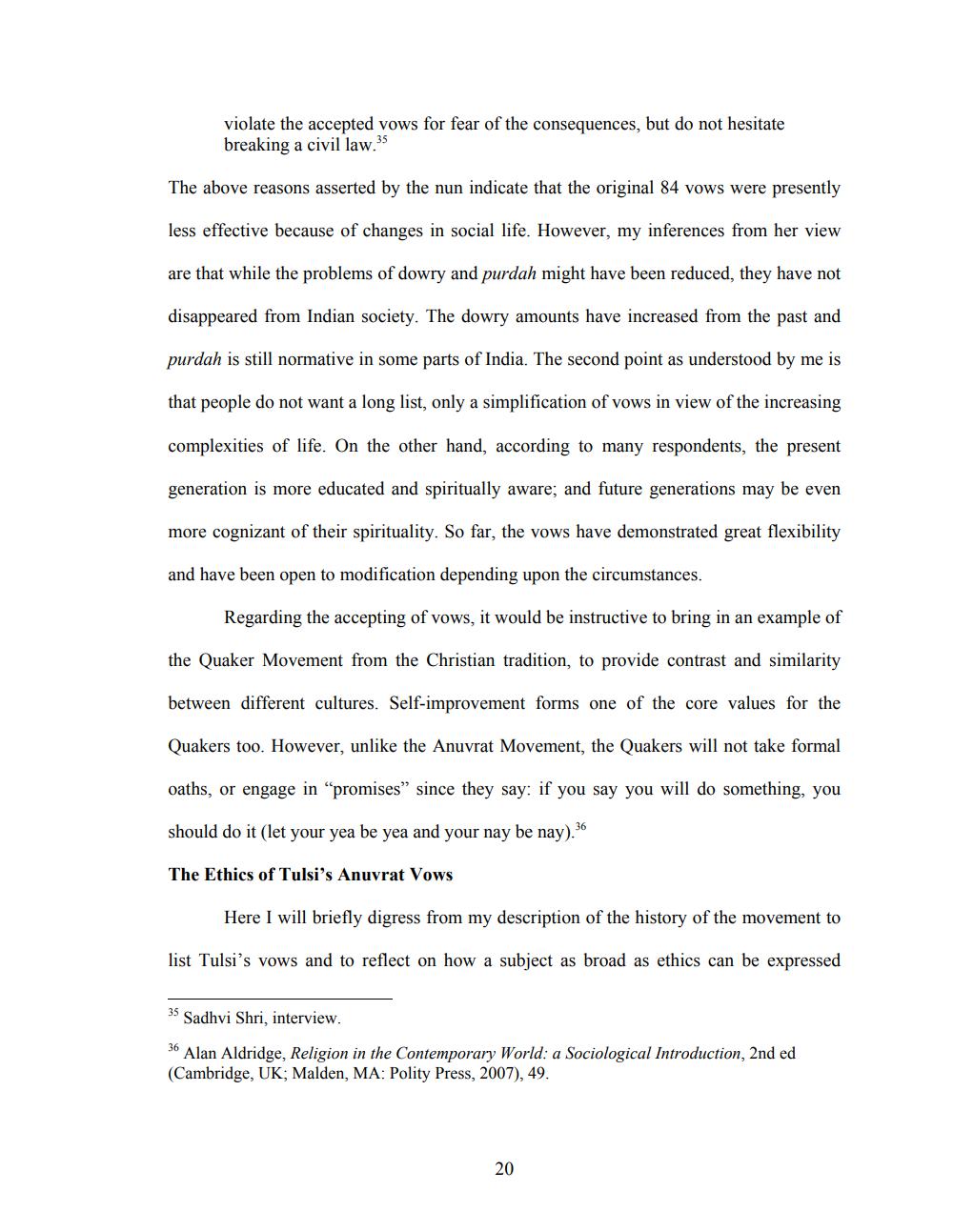________________
violate the accepted vows for fear of the consequences, but do not hesitate breaking a civil law. 35
The above reasons asserted by the nun indicate that the original 84 vows were presently
less effective because of changes in social life. However, my inferences from her view
are that while the problems of dowry and purdah might have been reduced, they have not
disappeared from Indian society. The dowry amounts have increased from the past and
purdah is still normative in some parts of India. The second point as understood by me is
that people do not want a long list, only a simplification of vows in view of the increasing
complexities of life. On the other hand, according to many respondents, the present
generation is more educated and spiritually aware; and future generations may be even
more cognizant of their spirituality. So far, the vows have demonstrated great flexibility
and have been open to modification depending upon the circumstances.
Regarding the accepting of vows, it would be instructive to bring in an example of
the Quaker Movement from the Christian tradition, to provide contrast and similarity
between different cultures. Self-improvement forms one of the core values for the
Quakers too. However, unlike the Anuvrat Movement, the Quakers will not take formal
oaths, or engage in “promises” since they say: if you say you will do something, you
should do it (let your yea be yea and your nay be nay).
The Ethics of Tulsi's Anuvrat Vows
Here I will briefly digress from my description of the history of the movement to
list Tulsi's vows and to reflect on how a subject as broad as ethics can be expressed
35 Sadhvi Shri, interview.
36 Alan Aldridge, Religion in the Contemporary World: a Sociological Introduction, 2nd ed (Cambridge, UK, Malden, MA: Polity Press, 2007), 49.




